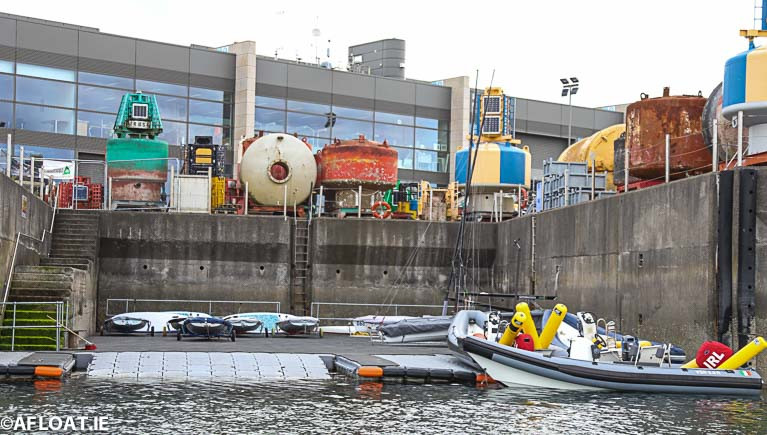Displaying items by tag: Olympic sailors
Olympic silver medalist Annalise Murphy could be back on the water next week as the Irish Olympic Sailing Team returns to its Performance Head Quarters at Dun Laoghaire Harbour from Monday, May 18.
Murphy, along with three other single-handed trialists, had to abandon plans for Tokyo 2020 as the COVID-19 emergency cancelled qualification regattas across Europe.
So far the women's Laser Radial is the only Irish boat qualified for Tokyo 2021 but which of the three will be sent to the Games is the subject of an ongoing trials series led by Murphy.
When the sailors return, the Performance Head Quarters container 'buildings' will be closed for all use except the launching of boats from its purpose-built pontoon.
The sailors will undergo hygiene protocol training in line with Government Return to Work guidelines.
The sailors won’t use the Performance Head Quarters all at the same time to minimise risk and will adhere to the 2-metre social distancing guidelines.
The only double-handers in the team able to sail is Howth Yacht Club 49er pairing Rob Dickson and Sean Waddilove who are from the same household.
Stars on show at Investwise SB3 Nationals at Howth
Among the highly competitive fleet will be four or five past or present Olympians, former national champions in several classes and a couple of All-Ireland Champions, a formidable line-up by any standards. Such is the quality of the field that any one of 10 crews is capable of taking the title, with consistency the key over the 8 races on the schedule.
The 'bookies favourite' is undoubtedly 'McCready's Gill Racing' sailed by Gareth Flannigan/Brian Spence/Jeremy Tomlinson from Ballyholme who already have two wins and two runners-up places in the four regional championships sailed this season. Former Olympian Peter Kennedy from RNIYC is the defending champion and with a new crew on 'Belfast Kitchens' has been building slowly throughout the year - their performance at the recent Westerns suggests they are very much in contention.
While the Northern fleet has been dominant in SB3s since the class was formed, they cannot discount the top performers from Dun Laoghaire, Howth and the South. Leading the southside challenge will be 'Yeti' (Sean Craig/Stephen Boyle/Alan Green), a prediction for a top 5 finish, while 'Bad' (Stefan Hyde/Jerry Dowling/Jimmy Dowling) has been improving ever since the Northern Championships
.
The host club's best bet is 'Sharkbait' sailed by Ben Duncan/Brian Moran/Ric Morris, a combination that is consistently at the top of the fleet (e.g. winning the Northerns) and tops the ranking ladder with Flannigan. A 'podium finish' is anticipated. The event sponsor David Quinn and his crew on 'Investwise' have enjoyed good form of late while 'Lia' (helmed by Dave Barry) has improved since a trip to Lake Garda.
The southern challenge is headed by 'Modus Operandi' (sailed by Ronan and Killian Collins and Donal Hegarty) which has the potential to upset the odds if they can put a steady campaign together.
Race Officer is David Lovegrove while Suzanne Carroll has masterminded the organisation of the event as chair of the Championship Committee.































































